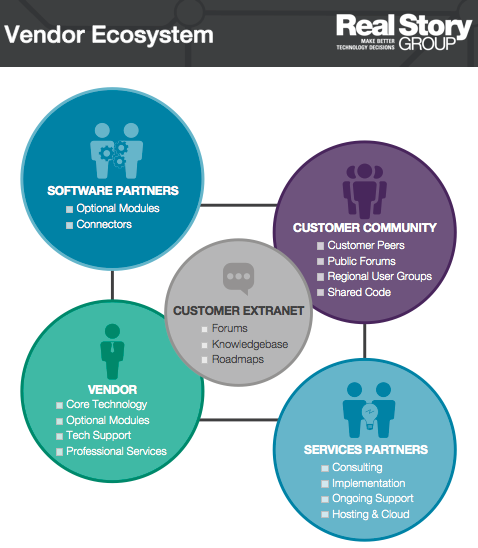Microsoft and Yammer....Why? Why Now?
The Wall Street Journal is confirming yesterday's rumor that Microsoft will acquire enterprise microblogging service Yammer for a generous $1.2 billion.
People are tripping over themselves to explain why this makes sense, but to me, it's a big shocker, and speaks volumes about what's happening -- or not happening -- in Redmond right now.
It's a shocker because Microsoft almost never makes acquisitions in technology segments that SharePoint nominally covers. Redmond has fiercely protected the SharePoint brand, copying innovations from smaller partners, rather than acquiring them. Microsoft has focused its SharePoint integration efforts on Office (the real cash-cow), and worked hard to keep the massive SharePoint codebase reasonably coherent. The downside to this approach is SharePoint's very sluggish, triennial update schedule.
So why did Microsoft break the mold here? Here's two plausible theories.
1. Defensive Move
Yammer might have become "in play," and Redmond wanted to keep a competitor from snapping it up. Remember that Microsoft is focusing on cloud-based Office365 for the next version of SharePoint, and another major vendor (IBM? Oracle? Google?) amping up Yammer could create a plausible competitor -- or in the case of Google, juice up an existing competitor.
Honestly this theory seems a bit of a stretch, since Microsoft generally doesn't behave this way, and in the real world, Yammer would present a rather underpowered threat to Office365. Of course, the world of enterprise social computing is not very "real" right now, and vendors typically make acquisitions for strategic rather than technical reasons, so perhaps Redmond really was making a defensive move.
2. Pre-empt Disappointment
A more plausible theory is that Redmond fears that on the social front, SharePoint 2013 will prove the same disappointment as SharePoint 2010. SP 2013 is about to get released to beta, but early whispers suggest that Microsoft did not enhance the platform's social features to the extent everyone expected. Unmet expectations are the stuff of serious revolts.
Now Redmond can deflect most criticisms of SharePoint 2013 by pointing to Yammer's existing capabilities along with Yammer's rather fanciful roadmap.
The Customer Perspective
What does this all mean for you the customer? Yammer customers should brace for some potential short-term dislocation -- the almost inevitable by-product of any acquisition. In the long run, Yammer gives SharePoint customers another option that presumably will become more tightly integrated into Office365. Just remember that this is not going to be "Shammer" -- it will be another product to purchase, and a very different architecture for customers to understand. In our model of Extend/Supplement/Complement for SharePoint, Yammer is still very much a Complement play.
Microsoft could also be looking towards integration with Skype. My colleague Kashyap Kompella has already coined the term, "Skammer." There'd be a lot of work for Redmond to do there.
Finally, as our Enterprise Collaboration & Social Software subscribers know, Yammer has some serious shortcomings. Ironically, it suffers a bit from SharePoint-itis: some nice features, but few polished applications. Yammer has thrived on its almost too-clever freemium model. At some point, Yammer's going to have to deliver better customer experiences. It's halting "embed" strategy was a step in the right direction, but I wonder if Microsoft will focus more on SharePoint integration going forward.
So, congratulations to the Yammer leadership for cashing out. For customers, the story remains quite mixed...







